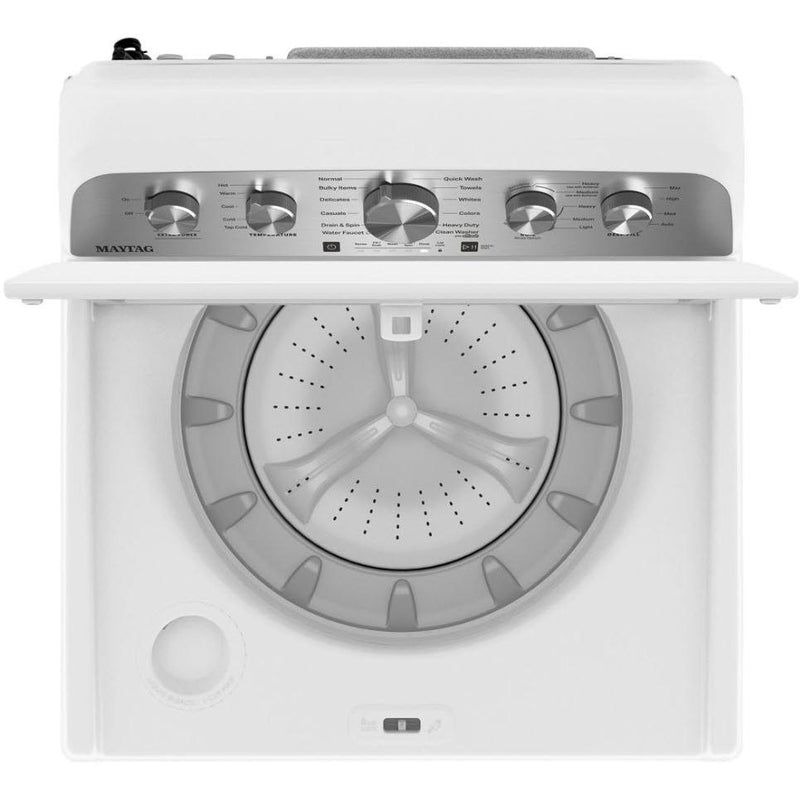What Is a Washing Machine Impeller?
A washing machine impeller is a low-profile rotating hub. It replaces the traditional agitator in modern washing machines. Impellers are designed to create a powerful water flow. This motion removes dirt and stains from fabrics efficiently.
Definition and Design Overview
The impeller consists of vanes or fins on its surface. These vanes generate a current to move clothes around during a wash cycle. Unlike agitators, impellers take up less space. This allows for more laundry capacity in the drum. The sleek design helps reduce wear and tear on clothes. Impellers are common in top-load and high-efficiency washing machines. Their design emphasizes gentle and energy-efficient cleaning.
Differences Between an Impeller and an Agitator
Impellers and agitators differ in shape and cleaning methods. An agitator is a tall, central post with fins. It moves clothes around by forceful rubbing. Impellers, on the other hand, are flat and use water flow to clean. Agitators may be harsher on delicate clothes while impellers are gentler. Machines with impellers also typically have larger washing capacities. Additionally, impeller washers consume less water and energy compared to agitator machines. This makes them a more eco-friendly option for modern households.
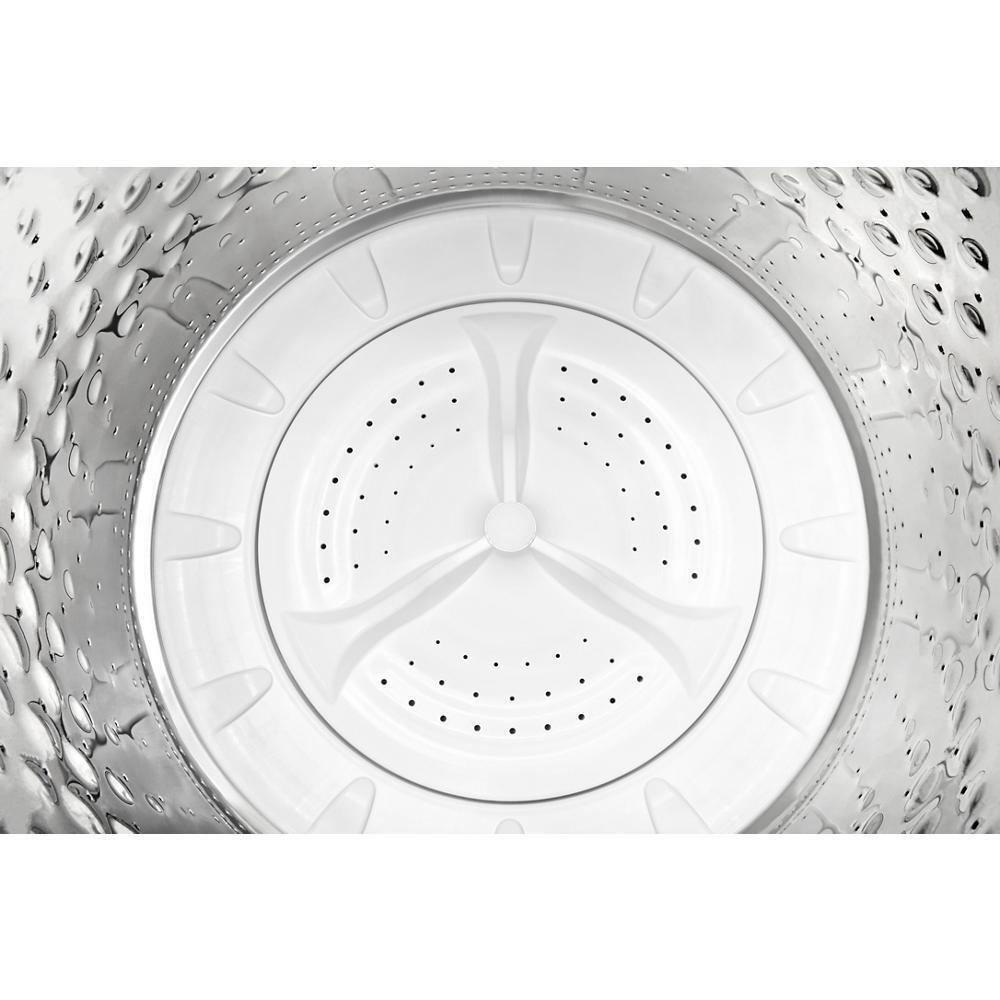
How Does a Washing Machine Impeller Work?
Washing machine impellers work differently from traditional agitators. They rely on water flow to clean clothes effectively. Instead of rough agitation, the impeller creates strong currents that gently yet powerfully cleanse fabrics. This modern cleaning technique is ideal for maintaining fabric quality while achieving superior cleanliness.
Mechanism Behind the Cleaning Process
The impeller rotates to generate water movement. Its vanes push water outward, creating powerful currents. These currents circulate clothes efficiently, helping to remove dirt and stains. The spinning action ensures even distribution of detergent throughout the load. Impeller technology reduces fabric friction compared to agitators, protecting delicate materials. This mechanism makes the washing process more gentle and effective.
Benefits of Using an Impeller
Impeller washers offer multiple advantages:
- Enhanced Cleaning: The impeller’s water-based cleaning method effectively removes stubborn stains.
- Gentler on Clothes: Fabrics face less wear and tear than with traditional agitators.
- Eco-Friendly: Impellers use less water and energy, reducing environmental impact.
- Greater Capacity: The impeller’s low-profile design creates more room for laundry loads.
- Quiet Operation: These machines produce less noise during wash cycles.
By combining efficiency and care, impeller washers provide reliable and sustainable cleaning solutions for modern users.
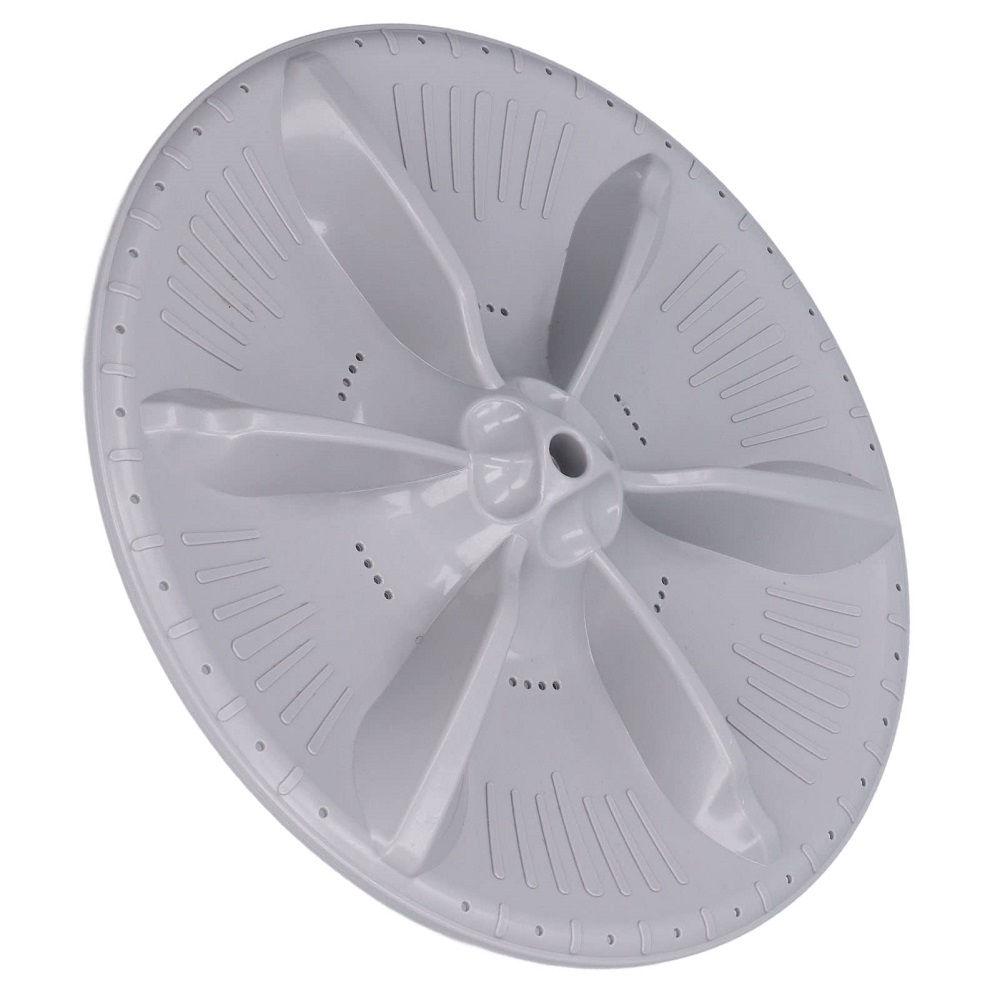
Types of Washing Machines with Impellers
Washing machines with impellers have gained popularity for their efficiency and gentle cleaning. They are available in top-loading and front-loading designs, offering choices to suit different household needs.
Top-Loading Machines with Impellers
Top-loading machines with impellers are commonly found in many households. These washers have a vertical drum where laundry is loaded from the top. The impeller sits at the bottom of the drum and uses its vanes to create strong water currents.
Advantages of top-loading impeller machines include:
- Easy Loading: Simple access to the drum makes loading and unloading convenient.
- More Laundry Space: The impeller design allows for larger load capacities.
- Quick Cleaning Cycles: These machines typically complete wash cycles faster.
Top-loading impeller washers are a great option for busy households due to their functional design and ease of use.
Front-Loading Machines and Impellers
Front-loading machines with impellers combine advanced cleaning technology with sleek design. These washers have horizontal drums that rotate gently while the impeller helps circulate water efficiently.
Benefits of front-loading impeller machines include:
- Space-Saving Design: Ideal for small laundry rooms due to their compact build.
- Better Cleaning Performance: Use tumbling and water flow for deep cleaning of fabrics.
- Energy Efficiency: Use less water and electricity compared to traditional washers.
Front-loading impeller machines are perfect for eco-conscious users who prioritize efficient cleaning with minimal impact on the environment.
Overall, whether you choose a top-loader or a front-loader, washing machines with impellers ensure effective and gentle fabric care while saving resources.
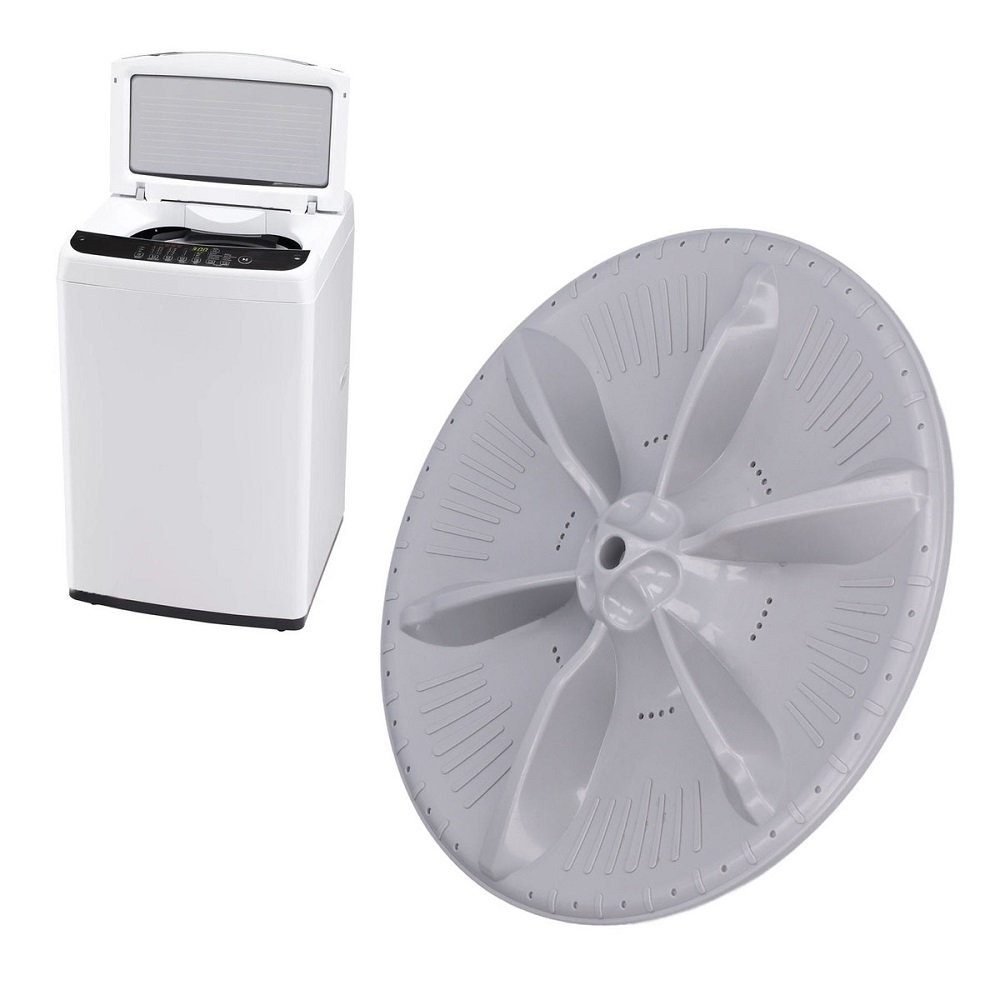
Advantages of an Impeller Washer
Washing machines with impellers have revolutionized home laundry with their unique benefits. These washers aim to provide efficient cleaning while being gentle on fabrics and optimizing resources.
Gentle on Clothes
Impeller washers are perfect for delicate fabrics. Their cleaning mechanism relies on water flow instead of harsh agitation. This reduces fabric wear and tear significantly. Clothes retain their quality after repeated washes with impellers. This is a big advantage, especially for items like silk or lace that need extra care.
Energy and Water Efficiency
Impeller machines are designed to consume less energy and water compared to traditional washers. The innovative cleaning process requires minimal water to create strong currents. This reduces overall water usage during cycles. Less water also means lower energy needed to heat water, cutting electric costs. Energy-efficient washers are a great choice for eco-conscious households.
Increased Washing Capacity
Impellers feature a space-saving design that increases the drum capacity. Unlike agitators, impellers don’t occupy much room since they lack a tall central post. This design allows users to wash larger loads at once. Laundry becomes faster and easier for busy families with more clothes to clean. Plus, the increased capacity saves time and maximizes efficiency within every cycle.
Common Issues with Impeller Washing Machines
Washing machines with impellers offer many benefits. However, they also come with potential challenges. Being aware of these issues can help users get the best performance.
Cleaning Challenges with Large Loads
Impellers rely on water flow to clean clothes. However, large loads may disrupt this process. Overloading the drum can restrict water movement. This leads to uneven cleaning and some clothes remaining dirty. Heavy items like blankets or jackets might tangle. This can reduce the efficiency of the impeller’s water currents. To avoid these issues:
- Stick to Recommended Load Sizes: Follow the machine’s guide for maximum load limits.
- Balance Laundry: Distribute items evenly around the impeller.
- Use Multiple Cycles: For bulky items, consider washing them separately.
These steps ensure better cleaning and protect clothing during wash cycles.
Maintenance and Durability Concerns
Impeller washers require regular maintenance to remain efficient. Over time, residue like detergent build-up can accumulate. This might clog the impeller or reduce water flow. Additionally, frequent use with improper loading can strain the impeller and its components. This impacts the washer’s durability.
To maintain your impeller washer:
- Clean the Impeller Regularly: Remove dirt and detergent residue after several wash cycles.
- Inspect for Damage: Check the impeller and drum for wear and tear.
- Use Suitable Detergents: High-efficiency detergents reduce build-up in impeller washers.
Proper care not only extends the lifespan of the machine but also ensures consistent performance.
Understanding these common issues helps users address and prevent problems proactively. This ensures a better washing experience and long-lasting results.
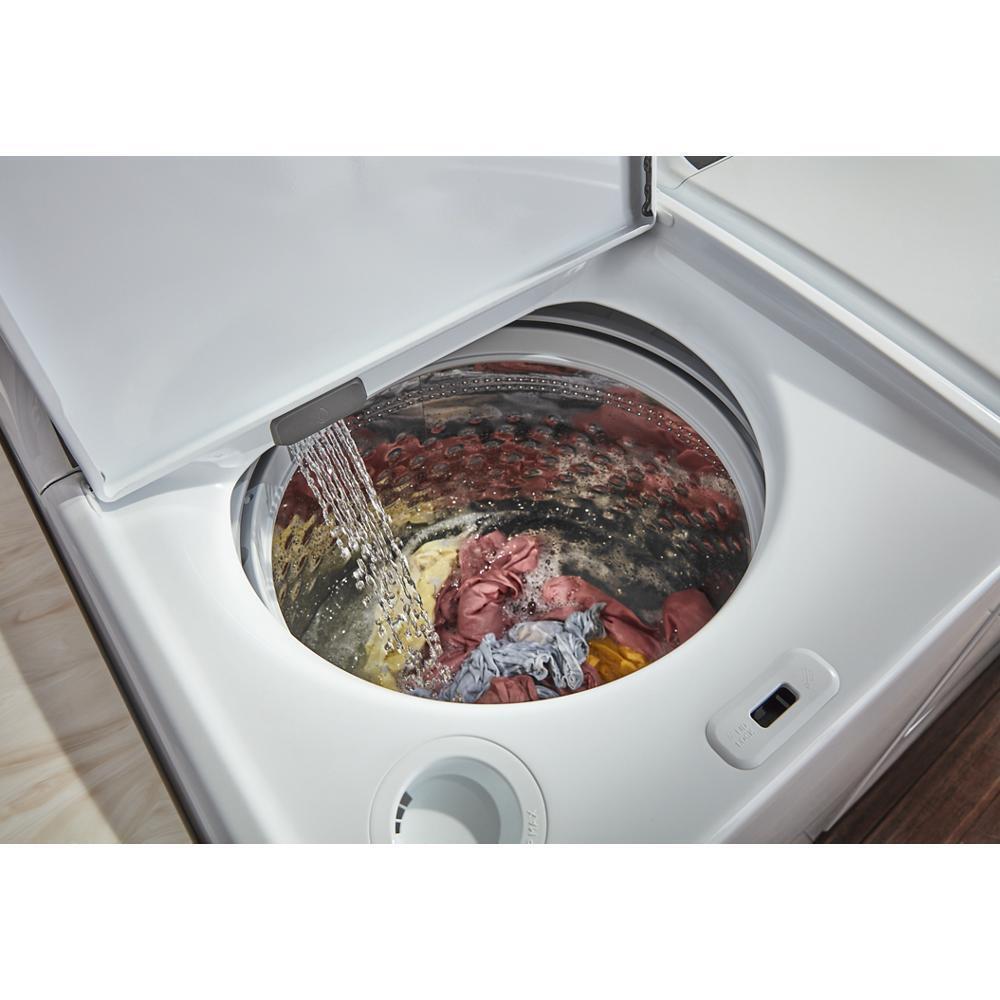
Tips for Maintaining a Washing Machine Impeller
Proper maintenance of a washing machine impeller ensures optimal performance and a longer lifespan. Neglecting care can lead to issues like reduced cleaning efficiency or mechanical wear. Following essential tips helps preserve the machine’s capability and prevents costly repairs.
Regular Cleaning and Care
- Clean the Impeller After Several Washes: Residue from detergent or dirt can accumulate on the impeller over time. Wipe it clean after a few cycles to prevent clogs.
- Inspect the Drum: Check the machine drum regularly for visible dirt or debris. This reduces risks of blockage.
- Use Suitable Detergent: High-efficiency detergents are ideal for impeller washers as they produce fewer residues.
- Run a Drum Cleaning Cycle: Use the washer’s cleaning cycle setting monthly to flush out detergent build-up. Add white vinegar or a cleaning solution for deeper cleansing.
- Confirm Water Pressure Settings: Washing machines perform better with balanced water pressure. Check and adjust settings when required.
Routine cleaning avoids performance issues and maintains the impeller’s efficiency.
Avoiding Common Mistakes in Usage
- Don’t Overload the Machine: Excess laundry can restrict water flow, making cleaning less effective. Follow load size recommendations from the user manual.
- Balance Items Evenly: Distribute clothes evenly around the drum. This prevents tangling and strain on the impeller.
- Avoid Hard Items: Wash items like shoes or heavy mats separately. These can harm the impeller or drum.
- Monitor Detergent Quantity: Using too much detergent leads to residue. Follow detergent measurement guidelines for best cleaning.
- Address Wear and Tear Promptly: If you notice unusual noises or decreased efficiency, inspect the impeller for damage. Fix issues early before they worsen.
Adopting these practices ensures your washing machine impeller remains in great condition.
Maintaining an impeller washer is simple with regular care and attention. Follow these tips to enjoy consistent washing results and extend your machine’s life.
How to Choose Between an Impeller and an Agitator Washer
Selecting between an impeller and agitator washer depends on personal preferences and laundry requirements. Each type offers distinct features and benefits, catering to different household needs.
Factors to Consider
When deciding on a washer, keep these key factors in mind:
- Laundry Type: Impellers are gentle on delicate fabrics, while agitators clean heavily soiled clothes better.
- Cleaning Efficiency: Agitators provide deep-cleaning action, ideal for tough stains. Impellers offer energy-efficient, uniform cleaning.
- Load Capacity: Impellers allow larger loads and are perfect for busy households. Agitators may limit space.
- Water Usage: Impeller washers use less water compared to agitator washers, promoting eco-friendly cleaning.
- Fabric Wear: Impellers reduce fabric damage, maintaining clothing quality over time. Agitators cause more friction.
- Budget: Impeller washers tend to be pricier upfront but save energy costs long-term.
Evaluate these points, balancing costs and benefits, to choose the right machine for you.
Suitability for Different Laundry Needs
Different types of laundry require different washing solutions. Here’s how each type suits specific needs:
- Families with Delicate Items: Impellers are better for families with delicate fabrics like silk or lace.
- Workwear Laundry: Agitators effectively remove heavy grime from work clothes or uniforms.
- Large Households: Impeller washers accommodate large laundry loads, saving time for busy families.
- Eco-Conscious Users: Impellers consume less water and energy, perfect for environmentally mindful homes.
- Budget Constraints: Agitator models are often more affordable for tight budgets.
Choose the washer type based on your regular laundry needs and desired cleaning style. Impellers offer modern cleaning technology, while agitators are reliable for tough stains and smaller budgets.
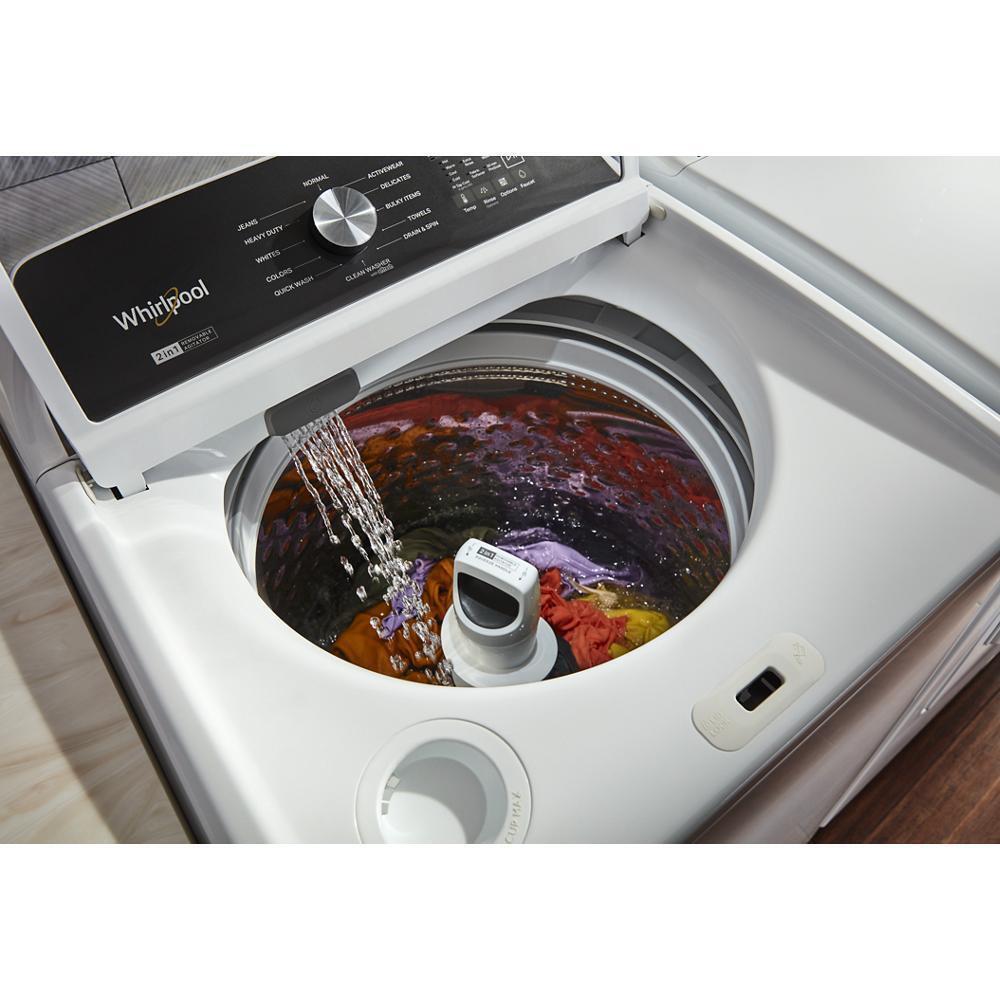
Popular Washing Machine Models Featuring Impellers
Washing machines with impellers offer advanced cleaning and efficiency. Various models from leading brands cater to different needs. Their modern features make them a popular choice for households seeking reliable performance.
Brands and Models Comparison
Several top brands manufacture washing machine impeller. These companies focus on innovation and quality. Below are some notable models and their standout features:
- Whirlpool High-Efficiency Top-Load Washers
- Known for their advanced impeller design.
- Provide excellent cleaning while using less water and energy.
- Include features like automatic load sensing for optimized cycles.
- LG Front-Load Washing Machines
- Combine powerful cleaning with energy-efficient technology.
- Offer larger capacity with compact designs, suitable for small spaces.
- Equipped with user-friendly digital controls and smart features.
- Samsung ActiveWash Top-Load Washers
- Feature built-in sinks for pre-treatment of tough stains.
- The impeller design ensures gentle yet thorough cleaning.
- Deliver quiet operation and eco-friendly options.
- Maytag Top-Load Washers
- Durable machines with heavy-duty impellers for tough stains.
- Features like PowerWash cycles enhance cleaning performance.
- Designed for families with frequent laundry needs.
- GE High-Efficiency Washers
- Focus on high efficiency and easy maintenance.
- The impeller system provides strong water flow for effective dirt removal.
- Include specialty cycles for custom cleaning options.
These models showcase how impeller washers achieve efficient cleaning while being gentle on clothes.
Customer Reviews and Feedback
Customer feedback gives valuable insights into the performance of impeller washing machines:
- Positive Reviews
- Customers appreciate the larger drum capacity, ideal for bulk loads.
- Many praised the energy and water savings, reducing utility bills.
- Users highlight how gentle these machines are on delicate fabrics.
- Common Concerns
- Some users struggled with uneven cleaning in overloaded drums.
- Others mentioned occasional issues with detergent residue in specific cycles.
- Regular maintenance was necessary to prevent detergent build-up.
- Overall Satisfaction
- Most users report consistent performance and durable builds.
- Households with eco-conscious priorities find these machines highly beneficial.
Analyzing reviews helps shoppers choose a model that fits their specific needs. Clear comparisons and reliable feedback simplify the decision-making process.

